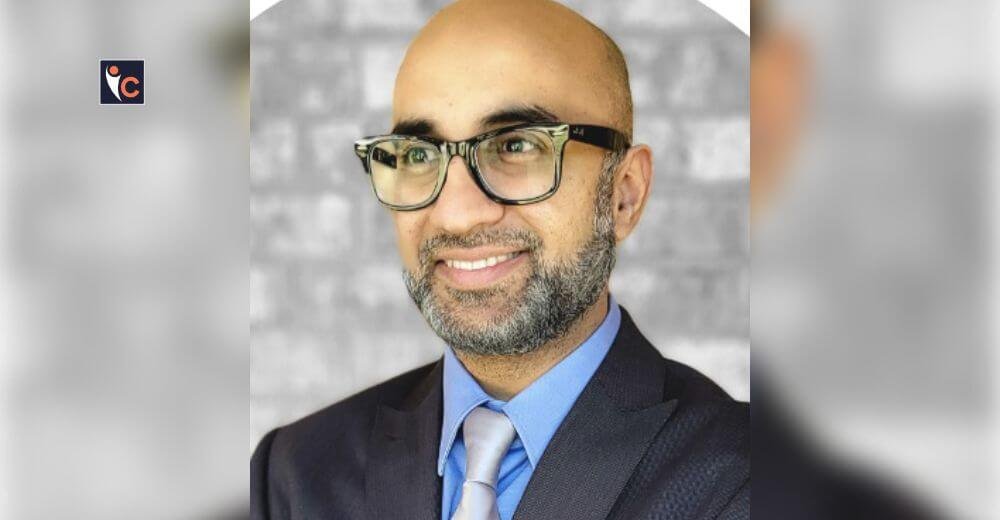Shahbaz Sohail, CEO and Founder of Elucid Health and Allyzent, has transitioned from practicing medicine to spearheading innovative healthcare technology solutions. At Allyzent, his mission is to create a more efficient, equitable, and patient-centered healthcare system through their AI Integrated Healthcare Platform. This platform addresses critical challenges such as provider burnout and administrative burdens while enhancing patient care.
Sohail is inspired by the tangible improvements their technology brings, streamlining workflows and boosting revenue for healthcare organizations, ultimately transforming healthcare delivery through AI-driven insights and proactive care management strategies.
Let’s delve into the interview data below!
Can you elaborate upon the core values, vision and mission based on which your services are aligned with Allyzent?
At Allyzent, our core values center around innovation, integrity, and impact. We believe in harnessing the power of AI and advanced analytics to solve real-world healthcare challenges. Our vision is a healthcare ecosystem where data flows seamlessly, decisions are informed by real-time AI-driven insights, and patients receive personalized, high-quality care.
Our mission is to develop and deploy our innovative AI Integrated Healthcare Platform that empowers providers, engages patients, and enhances the overall quality and efficiency of healthcare delivery. We’re committed to addressing provider burnout, optimizing revenue for healthcare organizations, and bridging gaps in care through our FHIR-compliant, cloud-native solutions. Every feature of our platform, from streamlining workflows to providing actionable insights for value-based care, aligns with our mission to create a more connected, intelligent, and patient-centric healthcare system.
Please highlight your roles and responsibilities at Allyzent?
As the leader of Allyzent, my role is multifaceted. I’m responsible for steering the development and implementation of our AI Integrated Healthcare Platform. This involves ensuring our product aligns with market needs and leverages cutting-edge AI and analytics capabilities.
I lead our efforts in product innovation, from conceptualization to launch, working closely with our engineering and data science teams. A significant part of my role involves fostering partnerships with healthcare providers and payers, demonstrating how our platform can address their specific challenges – from reducing administrative burden to optimizing revenue and improving patient care.
I’m deeply involved in our AI and analytics strategy, constantly exploring new ways to leverage these technologies to solve healthcare challenges. My background in medicine helps me ensure our solutions are not just technologically advanced, but also practical and impactful in real-world healthcare settings, truly addressing issues like provider burnout and care gaps.
In what way do you consider Allyzent’s technological advances to be a pathway in conducting its operations effectively? What endeavors are you currently pursuing to improve the care/treatment measures for your patients?
Allyzent’s technological advances, particularly our AI Integrated Healthcare Platform, are revolutionizing healthcare operations. Our platform allows healthcare providers to streamline workflows, reduce administrative tasks, and make data-informed decisions quickly, improving both operational efficiency and patient outcomes.
Currently, we’re focusing on several key areas:
- AI-Driven Workflow Optimization: We’re enhancing our AI capabilities to further reduce administrative burden and provider burnout.
- Revenue Enhancement: We’re refining our AI algorithms to better identify missed revenue opportunities and bridge care gaps for both payers and providers.
- Proactive Care Management: Our platform is being enhanced to support more proactive care strategies, particularly in value-based care models.
- Interoperability Enhancement: We’re continuously improving our FHIR-compliant interoperability to ensure seamless data exchange with major EMR systems.
- Health Equity Initiatives: We’re leveraging our data analytics capabilities to address disparities in healthcare delivery and outcomes. These endeavors aim to empower healthcare providers with the tools they need to deliver more efficient, equitable, and effective care to their patients while also optimizing their operations and revenue.
What are some of the challenges you face when conducting projects and how do you turn them into opportunities for growth?
In developing and implementing our AI Integrated Healthcare Platform, we face several challenges:
- Complexity of Healthcare Workflows: Each healthcare organization has unique processes. We’ve turned this into an opportunity by making our platform highly customizable and adaptable to different care models.
- Data Integration: Integrating data from various sources can be challenging. We’ve addressed this by developing robust FHIR-compliant interoperability solutions, positioning Allyzent as a leader in this crucial area.
- AI Ethics and Transparency: As we leverage AI for decision support, ensuring transparency and ethical use is crucial. We’ve embraced this by developing explainable AI models and implementing strict ethical guidelines.
- Adoption Resistance: Healthcare professionals can be hesitant to adopt new technologies. We’ve addressed this by focusing on user-friendly design and demonstrating clear ROI in terms of reduced burnout and increased revenue.
- Rapidly Evolving Value-Based Care Models: Keeping our platform aligned with changing payment models is challenging. We’ve turned this into an opportunity by making our solutions adaptable to both fee-for-service and value-based care models.
Each of these challenges has pushed us to improve and innovate, ultimately making Allyzent’s platform more robust and versatile.
Share with us some of the strategies that have helped you in your position as a leader. How do you keep up with specific responsibilities at Allyzent?
As a leader at Allyzent, several strategies have been crucial:
- User-Centric Development: We constantly engage with healthcare providers to understand their pain points, ensuring our platform effectively addresses issues like burnout and administrative burden.
- Data-Driven Decision Making: We use our own analytics capabilities to guide our business strategy and product development.
- Agile Methodology: We’ve adopted agile practices, allowing us to quickly adapt our platform to changing healthcare needs and regulations.
- Focus on Interoperability: We’ve made FHIR-compliant interoperability a core feature of our platform, addressing a critical need in the healthcare industry.
- Continuous Innovation in AI: We’re constantly exploring new applications of AI in healthcare, from workflow optimization to predictive analytics.
To keep up with my responsibilities, I prioritize based on impact – focusing on initiatives that will most significantly improve provider experience, patient care, and organizational revenue. I also ensure I have a strong leadership team, each expert in their domain, allowing me to focus on strategic direction and innovation.
What advice would you like to give to budding entrepreneurs and enthusiasts who desire to venture into the healthcare sector?
For those looking to venture into the healthcare sector, particularly in health tech, I’d offer this advice:
- Focus on Solving Real Problems: In healthcare, the most successful solutions address pressing issues like provider burnout, administrative inefficiencies, or gaps in patient care.
- Prioritize Interoperability: As we’ve done at Allyzent, ensure your solutions can integrate seamlessly with existing systems. FHIR compliance is increasingly crucial.
- Leverage AI Responsibly: AI can be a game-changer in healthcare, but it must be implemented ethically and transparently.
- Design for Both Fee-for-Service and Value-Based Care: The healthcare payment landscape is evolving, so build flexibility into your solutions.
- Keep the User in Mind: Whether it’s a provider or a patient, user experience is crucial for adoption and effectiveness.
- Understand the Regulatory Landscape: Healthcare is heavily regulated. Ensure your solutions comply with relevant laws and standards.
- Focus on Demonstrable Outcomes: In healthcare, you need to show how your solution improves care quality, reduces costs, or enhances efficiency.
Remember, in healthcare tech, you can make a real difference in people’s lives while addressing significant business challenges. It’s complex, but incredibly rewarding when done right.
How do you envision scaling your services and operations in 2024 and beyond?
At Allyzent, we have an ambitious vision for scaling our AI Integrated Healthcare Platform in 2024 and beyond:
- Expanded AI Capabilities: We’re investing heavily in enhancing our AI algorithms to provide even more accurate insights and predictions, further reducing the administrative burden and improving care quality.
- Interoperability Leadership: We aim to become the gold standard in FHIR-compliant interoperability, facilitating seamless data exchange across the healthcare ecosystem.
- Value-Based Care Focus: As the industry shifts towards value-based models, we’re expanding our platform’s capabilities to support this transition comprehensively.
- Health Equity Initiatives: We’re developing new modules that leverage our data analytics to address healthcare disparities and improve access to care.
- Strategic Partnerships: We’re actively seeking partnerships with major health systems and payers to amplify our reach and impact.
- International Expansion: We’re exploring opportunities to adapt our platform for international healthcare markets, starting with English-speaking countries.
- Continuous Platform Enhancement: We’re committed to ongoing refinement of our platform, ensuring it remains at the forefront of addressing provider burnout, optimizing revenue, and improving patient care.
Our goal is not just to grow in size, but to increase our impact on healthcare delivery and patient outcomes. We believe that by focusing on AI-driven innovation, interoperability, and adaptability to various care models, we can play a significant role in shaping the future of healthcare.










